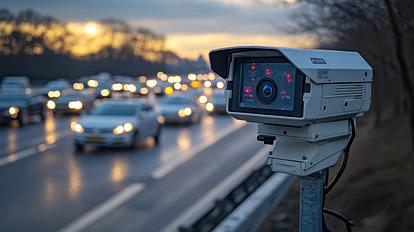The Central government has introduced a new Standard Operating Procedure (SOP) to strengthen traffic law enforcement using automated cameras. Submitted by the Ministry of Road Transport and Highways to the Supreme Court, the SOP sets clear guidelines for the use of cameras to detect traffic violations such as not wearing seatbelts or helmets, using mobile phones while driving, wrong-side driving, and even eating or drinking behind the wheel.
The Centre’s new SOP aims to boost traffic enforcement using automated cameras capable of capturing video evidence even at speeds up to 200 km/h. It targets violations like distracted and wrong-side driving to help reduce accidents and fatalities. The move follows a Supreme Court directive asking 23 states and 7 Union Territories to report on their use of electronic monitoring under the Motor Vehicles Act.
Automated Enforcement to Ensure Accountability
As per the new SOP, automated camera systems will serve as the main tool for monitoring traffic violations. These systems are designed to hold both drivers and enforcement agencies accountable by automatically capturing and generating evidence of offences like mobile phone use, eating or drinking while driving, and not wearing seatbelts.
The SOP states that cameras should record clear videos of 1 to 10 seconds, showing details like the vehicle number, location, date, and time without any blur. The system will quickly process violations and send alerts to traffic authorities within one second. These cameras will also catch wrong-side driving and use smart sensors to tell the difference between actual violations and allowed movements, like those by ambulances or fire trucks.
Addressing Fine Evasion and Ensuring Transparency
The SOP also tackles the issue of people avoiding traffic fines by changing their contact details. The Ministry has given a three-month period for vehicle owners and drivers to update their phone numbers and addresses. After that, providing accurate details will be mandatory for all transport or licence-related services.
To make the process more transparent, the SOP also calls for online systems in all states where people can challenge traffic fines. This aims to ensure that all violations are handled fairly and efficiently.



